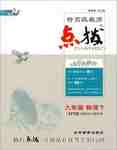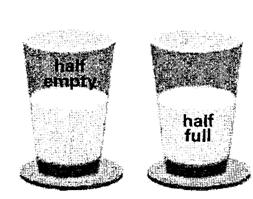题目内容
[ ]
B. energy
C. strength
D. powers

 特高级教师点拨系列答案
特高级教师点拨系列答案
Are you an optimist? Do you look at your glass and see it as half full? Do you believe that every cloud has a silver lining and that generally things turn out for the best? Do you believe that if something is meant to be, it will be? If you reply “yes” to all of these questions, then you are an optimist. You probably are enthusiastic, cheerful and outgoing. You may well be successful atwork and in love.
But you may be misguided because things don’t turn out for the best. You may believe that when one door closes another one opens (for example,you may fail to obtain a new job,another chance will come around soon), Wrong. When one door closes, another door slams in your face. That's bitter reality.
Now a book has been published which confirms what we pessimists(悲观者)have suspected all along. It's called The Positive Power of Defensive Pessimism. Its author argues that defensive pessimism can lead to positive results. Defensive pessimism is a strategy used to manage fear, anxiety and worry. Defensive pessimists prepare for things by setting low outcomes for themselves. They carefully consider everything that may go wrong and plan for ways to handle these problems. And this gives them a sense of control. Lawrence Sanno, a psychology professor, says, “What’s interesting about defensive pessimists is that they tend to be very successful people, so their low opinion of the situation’s outcomes is not realistic. They use it to motivate themselves to perform better. ”
So far, so good. This is not rocket science. Defensive pessimists prepare carefully and consider what might go wrong, whether at work, on a date or even in a sports game. It makes sense to have a back-up plan. There are many sayings in English urging caution. For example, “Don’t put all your eggs in one basket,” and “ Don’t count your chickens until they hatch. “ To have a confident and optimistic approach to life’s problems is good. But listen to what Woody Alien,the American comedian says, ”Confidence is what you have before you understand the problem.”
There are pros and cons to being an optimist and a pessimist. Don’t feel bad if you see the glass half empty. You are a realist. But lighten up and hook up with someone who sees the same glass half full.
【小题1】What is the passage mainly about?
| A.A book that has recently been published. |
| B.The dangers of being too optimistic. |
| C.The benefits of defensive pessimism. |
| D.How to become successful in life. |
| A.he cost is not so high | B.there is no real proof |
| C.it’s not a dangerous thing to do | D.it is quite simple to understand |
| A.an optimist | B.a realist | C.a defeatist | D.a scientist |
| A.“Don’t put all your eggs in one basket.” |
| B.“Every cloud has a silver lining.” |
| C.“Whatever will be, will be.” |
| D.“The glass is half full not half empty.” |

